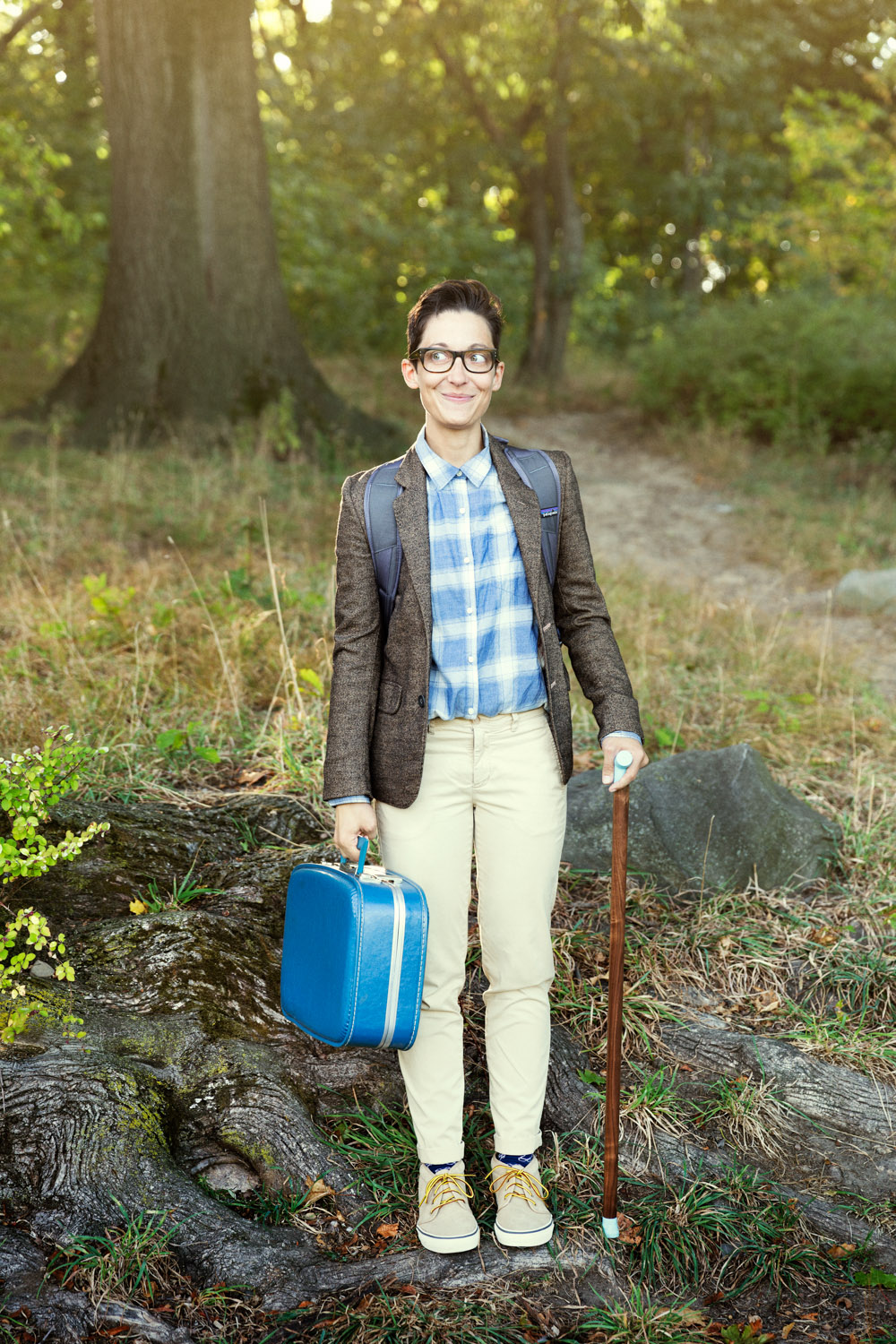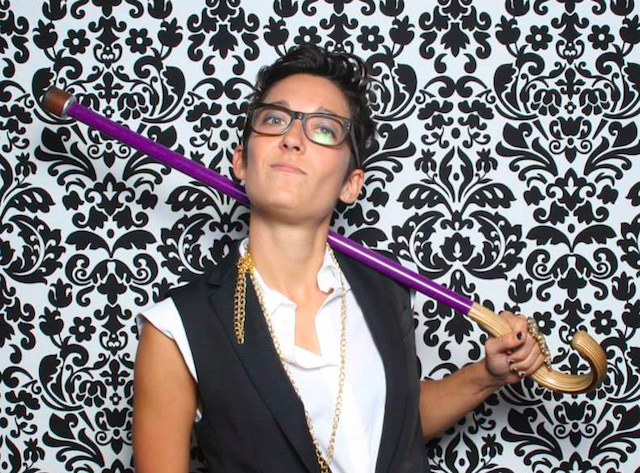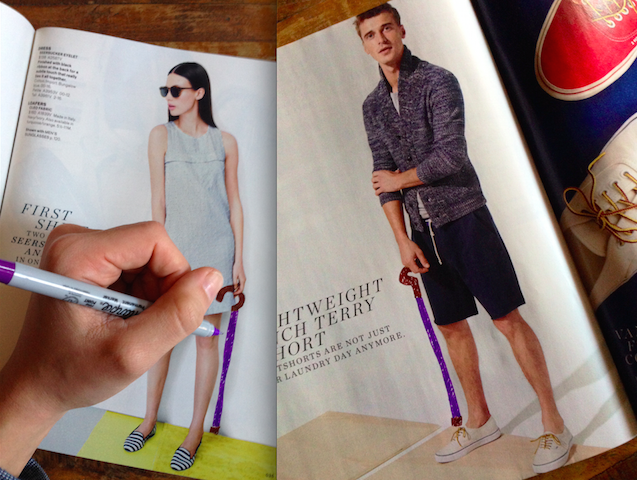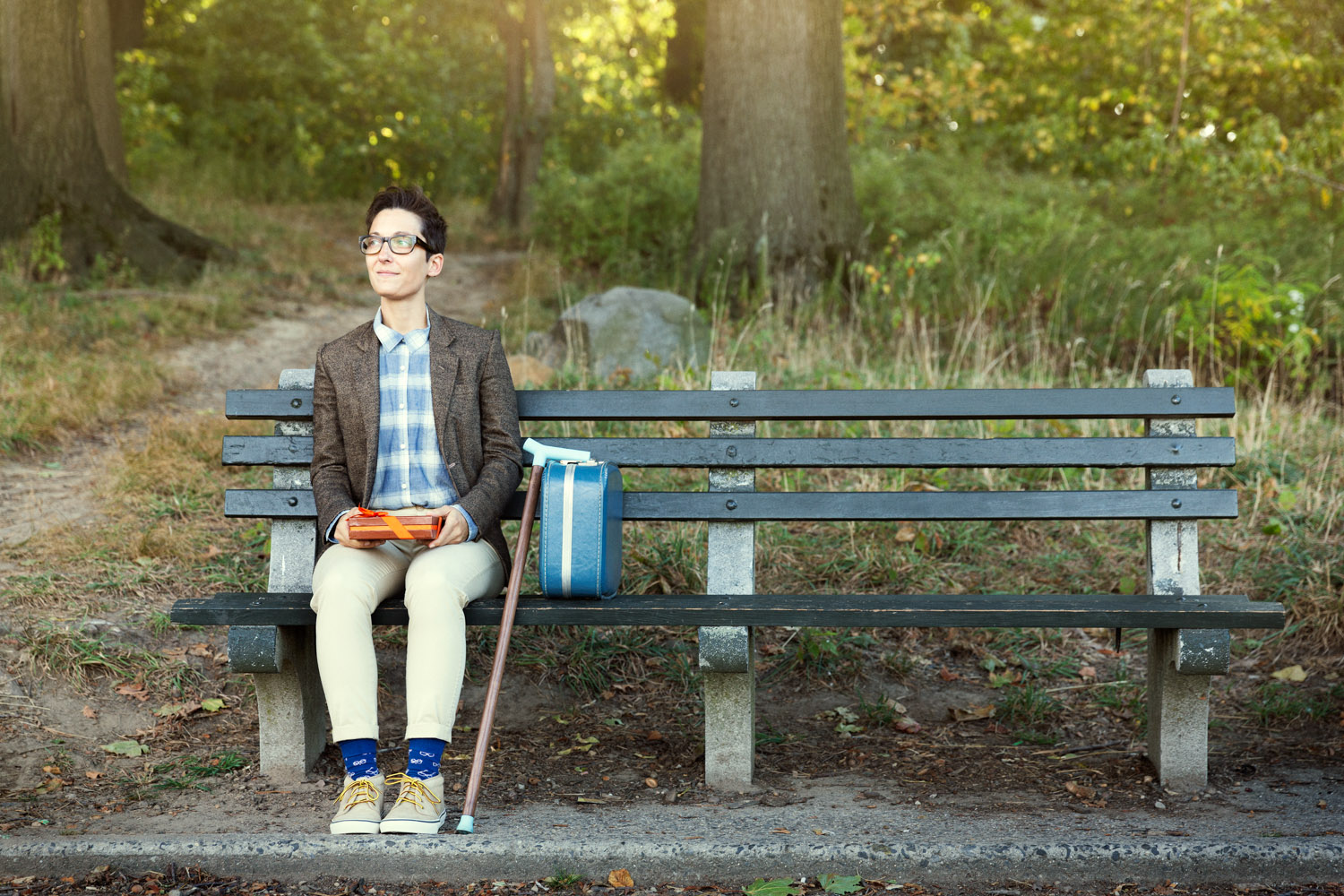J.Crew Said No to Her Idea for Accessible Fashion. Here’s What She’s Doing Now.
In March 2012, Liz Jackson unexplainably fell out of bed. She went to the hospital and was diagnosed with idiopathic neuropathy, an autoimmune condition that affects the nerves in her arms and legs. That was the moment her entire life changed.
“[The diagnosis] led to a tough time in my life, because I came out of the hospital and needed eyeglasses and a cane,” Jackson, now 33, told The Mighty. “What do you do? How do you pick up the pieces and go back about your life even though the most basic way you look has changed?”

After a difficult six months, Jackson slowly began embracing the person she’d become. She bought a bright purple cane to replace the bland, unremarkable one she’d been using. Once she began walking with the new purple cane in public, something interesting began to happen — passersby on the streets stopped asking her what was wrong and telling her to feel better.
“Instead, they were complimenting me and asking where I got [my cane],” Jackson told The Mighty. “It made so many things so much better.”

It was around this time that Jackson visited a J.Crew store in her hometown of New York City, and two things stood out to her. She noticed the retailer sold eyeglass frames, which require a prescription for the lenses, but nothing like a cane, which requires no follow up action with a medical professional after purchase. She also saw an array of colorful T-shirts on display and noted how well her purple cane would have fit in with the color scope.
Jackson reached out to J.Crew in 2014 to ask if they would consider selling canes in their stores and was told “no” without explanation. That was the moment #YesJCrewCane, Jackson’s public campaign to convince retailers like J.Crew to carry fashionable assistive devices like canes, was born.

Jackson started a Change.org petition to convince J.Crew to help reduce the stigma surrounding assistive devices by selling fashionable canes in stores. She’s reached out to the retailer multiple times. Every time, she was given a noncommittal response or a flat-out “no.”
But Jackson’s just getting started.
“I realized I don’t need to ask J.Crew anymore,” she told The Mighty. “I need to show them.”
Jackson already has her sights on a new project. She recently designed an “NYC Seat Share” badge people without disabilities can wear on the subway to indicate they’re able and willing to give up their seats for people with disabilities. That way, those who need subway seats don’t have to ask others to give them up. She recently met with a commissioner at the Mayor’s Office for People With Disabilities in New York City, who supported the idea. Jackson will begin working with a designer in the next few weeks and hopes the badges will be available by the end of 2015. She’s also advocating for designers to create pieces like a one-handed zipper or loose-fitting clothing that don’t differentiate between people with and without disabilities but can be worn by as many people as possible, The New Yorker reported.
Jackson told The Mighty she hopes to work with retailers like J.Crew in the future on how they could incorporate products that help people with disabilities, like purple canes and the seat share badges, into their brands.
“I’d like to tell [other retailers] to try it,” she told The Mighty. “It’s scary, it’s new, but that’s how people with disabilities feel when they first [become disabled]. The best way [retailers] could pay homage to their customers who are disabled is to do it when they’re uncomfortable. So, just do it.”

To learn more about Jackson’s advocacy work, visit her blog, The Girl With the Purple Cane. To learn more about her campaign to get department stores to begin selling , search the hashtag #YesJCrewCane campaign and visit her Change.org petition.

